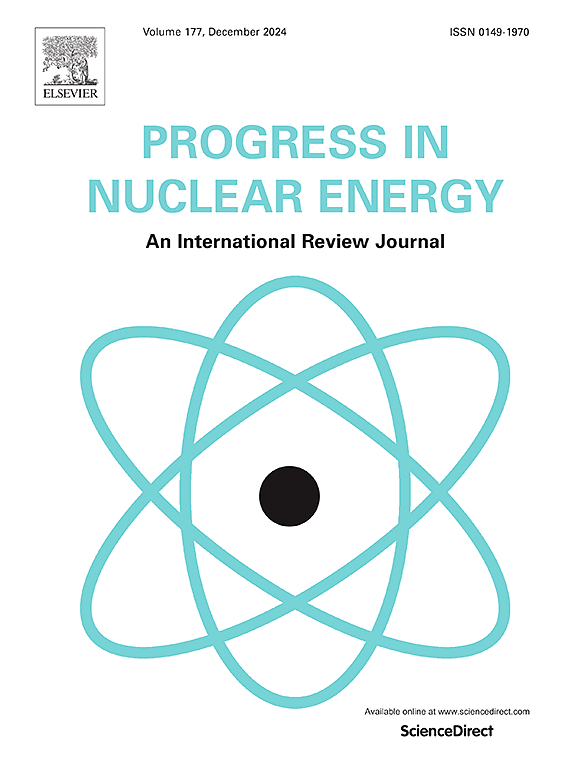A review on methods and applications of artificial intelligence on Fault Detection and Diagnosis in nuclear power plants
IF 3.3
3区 工程技术
Q1 NUCLEAR SCIENCE & TECHNOLOGY
引用次数: 0
Abstract
Nuclear power plants are critical facilities, which can generate a lot of energy through nuclear power and reduce environmental pollution. At the same time, should an accident occur at nuclear power plants, such as a nuclear leak, the consequences can be more severe than those associated with traditional power generation facilities. Therefore, Fault Detection and Diagnosis (FDD) has been an important technology in nuclear power plants. Traditional FDD methods mostly rely on the precise mathematical system model, which can be sometimes difficult to obtain in reality, and the detection accuracy of existing methods is thus limited. With the development of artificial intelligence (AI) technologies, FDD methods based on AI have been widely used. In this work, we make a systematic review of AI-based FDD methods, in conjunction with the introduction of the traditional FDD methods, and present the corresponding application scenarios of them. We hope that this work will help researchers incorporate more advanced AI models in nuclear power plants FDD and enlighten those interested in this field.
人工智能在核电站故障检测和诊断中的方法和应用综述
核电站是关键设施,可以通过核能产生大量能源,减少环境污染。同时,核电站一旦发生核泄漏等事故,后果可能比传统发电设施更为严重。因此,故障检测与诊断(FDD)一直是核电站的一项重要技术。传统的故障检测与诊断方法大多依赖于精确的系统数学模型,而这在现实中有时很难获得,因此现有方法的检测精度有限。随着人工智能(AI)技术的发展,基于 AI 的 FDD 方法得到了广泛应用。在这项工作中,我们结合对传统 FDD 方法的介绍,对基于人工智能的 FDD 方法进行了系统综述,并介绍了其相应的应用场景。我们希望这项工作能帮助研究人员将更先进的人工智能模型纳入核电站 FDD,并为对该领域感兴趣的人员提供启迪。
本文章由计算机程序翻译,如有差异,请以英文原文为准。
求助全文
约1分钟内获得全文
求助全文
来源期刊

Progress in Nuclear Energy
工程技术-核科学技术
CiteScore
5.30
自引率
14.80%
发文量
331
审稿时长
3.5 months
期刊介绍:
Progress in Nuclear Energy is an international review journal covering all aspects of nuclear science and engineering. In keeping with the maturity of nuclear power, articles on safety, siting and environmental problems are encouraged, as are those associated with economics and fuel management. However, basic physics and engineering will remain an important aspect of the editorial policy. Articles published are either of a review nature or present new material in more depth. They are aimed at researchers and technically-oriented managers working in the nuclear energy field.
Please note the following:
1) PNE seeks high quality research papers which are medium to long in length. Short research papers should be submitted to the journal Annals in Nuclear Energy.
2) PNE reserves the right to reject papers which are based solely on routine application of computer codes used to produce reactor designs or explain existing reactor phenomena. Such papers, although worthy, are best left as laboratory reports whereas Progress in Nuclear Energy seeks papers of originality, which are archival in nature, in the fields of mathematical and experimental nuclear technology, including fission, fusion (blanket physics, radiation damage), safety, materials aspects, economics, etc.
3) Review papers, which may occasionally be invited, are particularly sought by the journal in these fields.
 求助内容:
求助内容: 应助结果提醒方式:
应助结果提醒方式:


